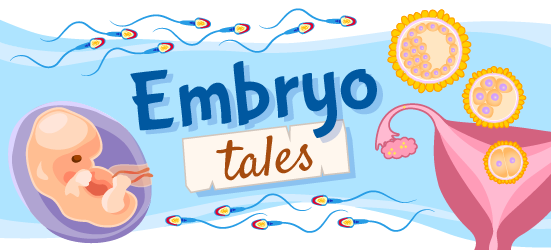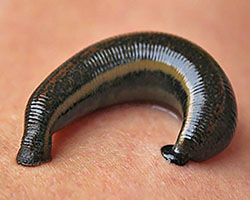
Periods: What Should You Expect?
Illustrated by: Sabine Deviche

Have you ever been sick with the flu? Sneezing, coughing, and feeling… blah. That is what happens when your body’s immune system is working to fight off an infection. Your body has several systems that work hard to keep you healthy. One of those is your reproductive system.
One process controlled by the reproductive system is the menstrual cycle. The menstrual cycle prepares the female body for pregnancy. Periods happen at the start of the menstrual cycle. When pregnancy does not happen, the tissue that lines the uterus sheds and leaves the body through the vagina. This happens about once a month and lasts five to seven days.
But periods do not always happen perfectly. Sometimes, some periods can last longer or shorter than others. Every so often, periods can also be heavier or lighter than your other periods. And during some months, they can even cause some pain. That’s all normal. But then, what makes a period abnormal? Some periods may not happen for many months or might cause so much pain that you can’t do your normal activities, like going to school or hanging out with friends.
In the Embryo Project articles, “Amenorrhea,” and “Dysmenorrhea,” authors talk about the differences between normal and abnormal periods. Hint: those are just complicated words for especially irregular and painful periods.
Missing Menstruation

Months go by fast. You might keep track of them by tearing pages off your calendar, or redecorating your home for whatever holidays are coming up. Another thing that marks each passing month for many people is their period.
A period typically happens every 28 days, or once a month, at the start of the menstrual cycle. But the menstrual cycle varies in length. Most periods can happen as frequently as every 24 days or as infrequently as every 40 days. A person can also stop having periods altogether. That can happen for reasons such as pregnancy or breastfeeding. That’s normal, too.

But sometimes people who are not pregnant or breastfeeding stop having a menstrual cycle. When that happens, their period is considered abnormal. People can tell that their periods are abnormal if they do not have a period for three months or longer. This can be a symptom of low body weight, stress, or intense exercise. When those things happen, the body may not have enough energy to complete its normal tasks, including the menstrual cycle and periods.
Irregular periods can also be a symptom of a condition called polycystic ovarian syndrome, or PCOS. PCOS causes small, fluid-filled sacs to grow inside the ovaries. These sacs make it difficult for the body to complete the menstrual cycle. And if the menstrual cycle does not work properly, then periods may not happen.
A Twinge (or More) of Cramps
You are running, passing quickly through a grassy field. Suddenly, you notice a twinge of intense cramping in your leg. Ouch! Your muscles feel like painful knots that keep getting tighter. Similar cramps happen in the abdomen during periods. But for some people, cramps can be especially painful.

Painful periods often happen when the body makes too much of a chemical called prostaglandin. During periods, the body makes prostaglandins that tell the uterus to tighten. That tightening makes the tissue lining of the uterus shed through the vagina. So, too many prostaglandins may tell the uterus to tighten more than normal, which causes extra painful periods. It can even cause other symptoms, like nausea and diarrhea.
Issues with the tissue lining of the uterus can also cause periods that are more painful than normal. Endometriosis can happen when the tissue lining grows outside the uterus. Usually, the tissue lining should only grow inside the uterus. Those growths usually spread to the ovaries and fallopian tubes, which can swell and bleed during periods. When that happens, it may cause very painful periods. Painful periods can make a person feel poorly. In fact, it’s one of the most common reasons that people miss school days.
The Bigger Picture on Periods

It’s important to be able to detect abnormal periods, because they are often a symptom of other health issues. For instance, irregular periods may be the result of anemia. Anemia is when blood is less able to carry oxygen to the body’s tissues. Anemia causes a person to feel very tired and weak, and can make your periods happen less frequently. On the other hand, certain menstrual disorders, like heavy bleeding, can cause anemia. That’s because they reduce the number of red blood cells that can carry oxygen in your body.
People who have periods spend nearly half of their lives menstruating. That’s a long time to have periods, especially if they are irregular or painful. It can take a great toll on a person’s quality of life, affecting their family, school, and social lives. Let’s take a closer look at how people have learned to manage those symptoms.
Periods in Antiquity and Beyond
You may have friends who have abnormal periods without even realizing that you do. That’s because people don’t always talk about their periods, since it can be an uncomfortable topic of conversation. But people have talked about abnormal periods for centuries.

The ancient Greek philosopher Aristotle was one of the first to write about periods in 400 BCE. He taught that irregular periods make it difficult to become pregnant. Later, the ancient Greek physician Hippocrates also wrote about periods. He believed they are especially painful when the blood can't leave the body.
Those ideas were popular until the 19th century. Then, doctors began to look at abnormal periods more closely. One of them, Fleetwood Churchill, noticed that one of his patients, who had her ovaries removed, did not have periods. He was one of the first to guess that the absence of her periods was a result of her not having ovaries.
Churchill also said that painful periods happened mostly among emotional women, a common belief during his time. Churchill wrote that a doctor should remove at least 12 ounces of blood to treat them.
At that time, doctors used leeches to remove blood. That’s an old medical practice called bloodletting. Doctors used it to treat nearly every disease as a way to rid the body of “bad” blood. But today, we know that emotions do not cause painful periods. And we certainly don’t practice bloodletting or use leeches!
Learning More About the Female Body

Like Churchill, other doctors also discussed why some people had abnormal periods. One of them was William Tyler Smith. He wrote that women who had irregular periods looked and acted less feminine. A common belief during Churchill’s and Smith’s time was that women who did not have periods were not suitable for marriage. Some doctors even recommended that women become engaged to restore their periods.
Scientists didn’t understand the causes of abnormal periods until the 20th century. That's when they realized that periods happen as a result of changing hormone levels. Hormones are messengers that tell different parts of the body what to do, such as start a period. This taught us that when something disrupts normal hormone levels, abnormal periods come as a result. Low body weight, too much stress, or intense exercise can disrupt hormone levels.
There are many ways to make periods more regular or less painful. People who live with endometriosis or PCOS are able to manage abnormal periods. Pills that regulate hormone levels are one of many treatments for abnormal periods.
Pigeon eggs image by Sanjay Acharya via Wikimedia Commons.
This Embryo Tale was edited by Risa Schnebly and is based on the following Embryo Project articles:
Darby, Alexis, "Symptoms Associated with Polycystic Ovarian Syndrome (PCOS)." Embryo Project Encyclopedia (2017-12-19). ISSN: 1940-5030 http://embryo.asu.edu/handle/10776/13027.
Horwitz, Rainey. “Lydia Pinkham’s Vegetable Compound (1873–1906).” Embryo Project Encyclopedia (2015-05-20). ISSN: 1940-5030 http://embryo.asu.edu/handle/10776/11506.
Perez, Jovanna, Santora, Emily, "Endometriosis". Embryo Project Encyclopedia (2021-06-21). ISSN: 1940-5030 http://embryo.asu.edu/handle/10776/13279.
Santora, Emily, "Amenorrhea as a Menstrual Disorder". Embryo Project Encyclopedia (2021-08-03). ISSN: 1940-5030 http://embryo.asu.edu/handle/10776/13298.
Santora, Emily, "Dysmenorrhea as a Menstrual Disorder". Embryo Project Encyclopedia (2021-07-21). ISSN: 1940-5030 http://embryo.asu.edu/handle/10776/13287.
Van Iten, Brendan. “Estrogen and the Menstrual Cycle in Humans.” Embryo Project Encyclopedia (2016-06-22). ISSN: 1940-5030 http://embryo.asu.edu/handle/10776/11344.
Read more about: Periods: What Should You Expect?
Bibliographic details:
- Article: Periods: What Should You Expect?
- Author(s): Emily Santora
- Publisher: Arizona State University School of Life Sciences Ask A Biologist
- Site name: ASU - Ask A Biologist
- Date published:
- Date accessed:
- Link: https://askabiologist.asu.edu/embryo-tales/abnormal-periods
APA Style
Emily Santora. (). Periods: What Should You Expect?. ASU - Ask A Biologist. Retrieved from https://askabiologist.asu.edu/embryo-tales/abnormal-periods
Chicago Manual of Style
Emily Santora. "Periods: What Should You Expect?". ASU - Ask A Biologist. . https://askabiologist.asu.edu/embryo-tales/abnormal-periods
Emily Santora. "Periods: What Should You Expect?". ASU - Ask A Biologist. . ASU - Ask A Biologist, Web. https://askabiologist.asu.edu/embryo-tales/abnormal-periods
MLA 2017 Style

In 1721, the Italian scientist Antonio Vallisneri described an infertile woman with shiny ovaries with a white surface, comparing them to pigeon eggs. What Vallisneri didn’t know then is that he was likely describing a condition we now call Polycistic Ovarian Sydnrome, or PCOS.
Be Part of
Ask A Biologist
By volunteering, or simply sending us feedback on the site. Scientists, teachers, writers, illustrators, and translators are all important to the program. If you are interested in helping with the website we have a Volunteers page to get the process started.
